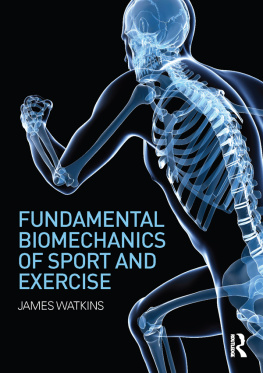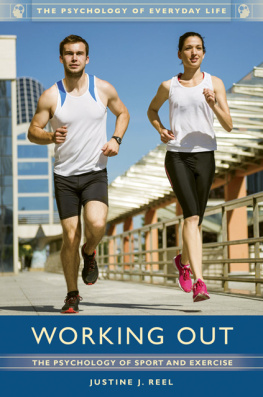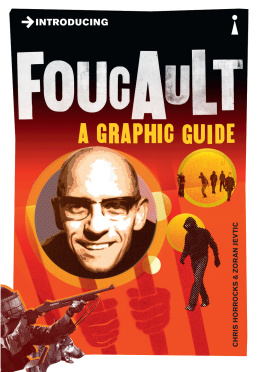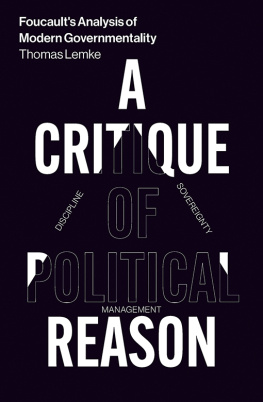
Foucault, Sport and Exercise
Michel Foucault is one of the most influential thinkers of the modern age. His work profoundly influences the way we think about society, in particular how we understand social power, the self, and the body. Foucault, Sport and Exercise explores how Foucauldian theory can inform our understanding of the body, domination, identity and freedom as experienced through sport and exercise.
- Part I: Power, Knowledge and the Self introduces Foucault and his ideas, highlighting key debates for sociologists of sport and exercise.
- Part II: Foucauldian Interpretations of the Body and Lived Experiences in Sport and Exercise uses Foucaults theories to explore power relations, the body, identity and the construction of social practices in sport and exercise.
- Part III: Aesthetics of Ethical Self-Stylisation examines the ways in which individuals make sense of the social forces surrounding them, considering physical activity, fitness and sport practices as expressions of freedom and sites for social change.
Accessible and clear, Foucault, Sport and Exercise considers cultures and experiences in sports, exercise and fitness, coaching and health promotion. In addition to presenting established Foucauldian perspectives and debates, the text also provides innovative discussion of how Foucaults later work can inform the study and understanding of sport and the physically active body.
Pirkko Markula is Senior Lecturer in the Department of Education at the University of Bath. Richard Pringle is Senior Lecturer in the Department of Sport and Leisure Studies at the University of Waikato.
First published 2006
by Routledge
2 Park Square, Milton Park, Abingdon Oxon OX14 4RN
Simultaneously published in the USA and Canada
by Routledge
270 Madison Avenue, New York, NY 10016
Rouledge is an imprint of the Taylor & Francis Group, an informa business
This edition published in the Taylor & Francis e-Library, 2006.
To purchase your own copy of this or any of Taylor & Francis or Routledges collection of thousands of eBooks please go to www.eBookstore.tandf.co.uk.
2006 Pirkko Markula and Richard Pringle
All Rights Reserved. No part of this book may be reprinted or reproduced or utilised in any form or by any electronic, mechanical, or other means, now known or hereafter invented, including photocopying and recording, or in any information storage or retrieval system, without permission in writing from the publishers.
British Library Cataloguing in Publication Data
A catalogue record for this book is available from the British Library
Library of Congress Cataloging-in-Publication Data
Markula, Pirkko, 1961
Foucault, sport and exercise : power, knowledge and transforming the self / Pirkko Markula and Richard Pringle.
p. cm.
Includes bibliographical references and index.
1. Body, HumanSocial aspects. 2. Physical fitnessSocial aspects. 3. Body imageSocial aspects. 4. Mind and body. 5. Power (Social sciences) 6. Foucault, MichelInfluence. I. Pringle, Richard, 1964 II. Title.
HM636.M34 2006
306.483dc22
2006011572
ISBN 0-203-00650-X Master e-book ISBN
ISBN 10: 0-415-35862-0 (hbk)
ISBN 10: 0-415-35863-9 (pbk)
ISBN 10: 0-203-00650-X (ebk)
ISBN 13: 978-0-415-35862-0 (hbk)
ISBN 13: 978-0-415-35863-7 (pbk)
ISBN 13: 978-0-203-00650-4 (ebk)
Acknowledgements
We would like to thank all of our colleagues who contributed to the completion of this book. In addition, we would each like to offer a word of personal thanks.
Pirkko Markula: I would like to acknowledge the Department of Education at the University of Bath for providing the academic and intellectual environment that allowed my part of this book to materialise. In addition, I would like to thank the British Academy for providing funding that made writing Chapter 9 in this book possible. Finally, I would like to extend special thanks to Jim Denison whose personal and intellectual generosity was invaluable in the process of writing this book.
Richard Pringle: I planned and wrote most of my contribution to this book while on study leave from teaching duties at the University of Waikato, New Zealand. I thank the Department of Sport and Leisure Studies for generously allowing time for this endeavour. Most importantly, I thank my family especially Dixie, Zachary and Luke for their love and support in creating the perfect environment for writing and living.
Portions of this book have appeared partially and/or in earlier drafts in:
Markula, P. (2004) Fitness and Exercise: Embodied Knowledge?, in L. Bresler (ed.) Knowing Bodies, Moving Minds: Toward Embodied Teaching and Learning, Netherlands: Kluwer Academic.
Markula, P. (2004) Tuning into Ones Self: Foucaults Technologies of the Self and Mindful Fitness, Sociology of Sport Journal, 21, 190210.
Markula, P. (2003) The Technologies of the Self: Feminism, Foucault and Sport, Sociology of Sport Journal, 20, 87107.
Pringle, R. and Markula, P. (2005) No Pain is Sane After All: A Foucauldian Analysis of Masculinities and Mens Experiences in Rugby, Sociology of Sport Journal, 22, 472497.
Introduction
Michel Foucault was one of the most influential scholars of his time. Even following his death in 1984 his work concerning the power/knowledge/self nexus remains at the centre of heated debates. There are numerous interpretations of his theoretical stance from several different social sciences disciplines including our field of sport studies. There is, however, no comprehensive text on Foucault and sport although numerous, yet often contradictory citations to his work appear across sport studies. To examine his possible contribution to sport research, our idea to write a book devoted entirely to Foucault and sport started to evolve.
Foucault was a productive scholar whose published works included numerous books, interviews, papers and lectures. It is impossible to do justice to all of his work in one book. Regardless, in this book we aim to introduce Foucaults conceptual framework in an in-depth manner and we have, therefore, drawn from Foucaults own works as closely as possible rather than relying heavily on other scholars Foucauldian interpretations. This does not mean that we entirely ignored all such works. On the contrary, there are many excellent and also often critical texts of Foucaults theory. Our main goal in this book, however, is to explain what Foucault wrote or said instead of defending him against his numerous critics Foucault was quite capable of doing that himself.
Foucault did not explicitly address sport or physical activity in his work, although his emphasis on the body as a site for force relations resonates closely with our field of study. Therefore, while we aim to provide a reading of Foucaults theory based as closely as possible on his own writings, we also provide accounts from existing Foucauldian sport and exercise research. Our intention is to introduce readers to a range of examples on how Foucaults works can serve sport studies. Readers are then invited to form their own critical interpretations based on the variety of readings that Foucaults work offers. We also use our own work in sport and exercise to illustrate Foucaults conceptual framework throughout the book.
While we discovered Foucaults work through our own personal scholarly journeys, we both were originally interested in issues related to gender, power and resistance in sport. However, our research foci differed significantly. Richard was interested in issues of masculinity in rugby that in many ways epitomises the traditional masculine values. Pirkko was interested in the construction of the feminine body in fitness, an environment that some would consider perpetuating traditional femininity. While our research interests are quite different, they provide a wide base for a variety of examples of how Foucaults work can be used to interpret sport, fitness and physical activity in contemporary society. In addition, our international backgrounds Richard is a New Zealander while Pirkko is a Finn currently living in England could further highlight the possibilities of using Foucaults theory in different cultural contexts. Despite our current geographical distance, we were previously colleagues at the University of Waikato, New Zealand and, therefore, have collaborated on many of the research projects that we introduce in this book. The idea to write a book on Foucault also evolved from this collaboration. Although our data collection activities may have been carried out individually, to provide coherence to our book, we have chosen to use the pronoun we throughout to further illustrate our collective effort to understand sporting experiences through Foucaults theory.








